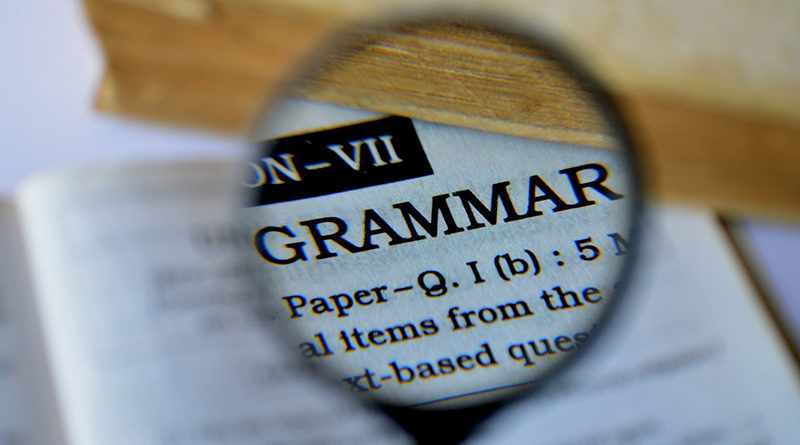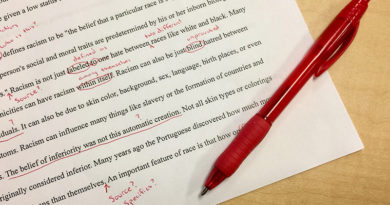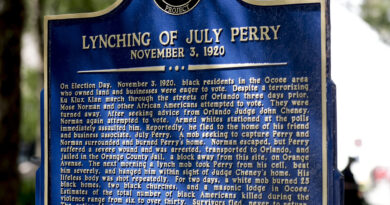Phrasal verbs
Phrasal Verbs (dt.: Verben plus Partikel) werden zusammengesetzt aus einem Verb und einem Adverb oder einer Präposition. Es kann sehr nützlich sein, sich einige von ihnen einzuprägen, denn sie werden im Englischen häufig verwendet. Hier werfen wir einen Blick auf einige Phrasal Verbs mit „back“ und „turn“.
By Moya Irvine
Phrasal verbs are verbs made up of a verb together with an adverb or a preposition or both. The adverb or preposition changes the meaning of the verb, so it can be hard to guess what a phrasal verb means. To make things even more complicated, phrasal verbs can have more than one meaning. In the Language Corner in the August issue of Read On we looked at two phrasal verbs: to back up and to turn out.
To back up can mean to support as in this example:
– Paul didn’t agree with the decision, and I backed him up.
To back up can also mean to make a copy:
– I always back up important files on a memory stick.
In this sentence, back up means ‘to move backwards’.
– He backed the car up close to the wall.
There are other phrasal verbs with back.
If you back out of something you decide not to do something you had agreed to do.
– John said he would help me decorate the sitting room but he backed out.
You can also back down, which means you admit you were wrong, in an argument, for example.
-The president backed down on his decision to build a wall all along the border.
There are even more phrasal verbs with turn.
You can turn something off or on.
– Please stop turning the light off and on – you will ruin it!
To turn out means to be known or discovered, finally and surprisingly.
-I thought it was an edible mushroom, but it turned out to be poisonous.
To turn out can also mean to come, especially to an event or an election.
– Only 50% of registered voters turned out for the local elections.
To turn in can mean to hand something in
– Please turn in your homework by the end of the week.
or to go to bed
– I am really tired, I think I’ll turn in.
Then there’s to turn into, which means to change into.
– The coach turned into a pumpkin at midnight.
To turn down means to lower the volume, on a radio for example.
– Your music is much too loud. Turn it down please!
It can also mean to refuse a request.
– He asked me if I’d like to stay on after my traineeship, but I turned him down.
To turn up means to make the volume louder.
– I can’t hear the dialogue properly. Can you turn the TV up?
It can also mean to appear unexpectedly.
– I hadn’t seen Mary for years then she suddenly turned up at the door.
Now practise these phrasal verbs in the exercise. Match the verbs and prepositions and then use them to complete the sentences as shown in the example.
Verbs: backed, turns, backing, turned, backed, turn, back, turned, turn, backed, turn, turned, turn
Prepositions: up, into, down, up, out, down, off, up, in, out, up, down, in
Example: Our teacher has asked us to _________ ______ our essays tomorrow.
Our teacher has asked us to turn in our essays tomorrow.
1. Tom asked Mary to marry him and was very disappointed when she ________ him ________.
2. I bought an old vase at the flea market and it ________ ________ to be a valuable Chinese antique.
3. The neighbours have complained about our loud music. They said we have got to ________ it ________.
4. I had a terrible argument with the boss yesterday, but my colleague said I was right and ________ me ________.
5. Don’t forget to ________ ________ the light before you leave.
6. It’s really late and we’ve got a busy day tomorrow, so I think we should ________ ________.
7. My mother said she would babysit for me this evening, but she ________ _______ at the last minute.
8. I looked everywhere for my key, then it ________ ________ in the dog’s basket.
9. He lost all his files because he forgot to ________ them ________.
10. He’s a really nice guy, but after a few drinks, he _______ _______ a monster.
11. I’m afraid the car got bumped today. It happened while I was ________ it _______.
12. The workers had planned to go on strike, but they ________ _______ after a long debate.
Answers
1. Tom asked Mary to marry him and was very disappointed when she turned him down
2. I bought an old vase at the flea market and it turned out to be a valuable Chinese antique.
3. The neighbours came have complained about our loud music. They said we have got to turn it down.
4. I had a terrible argument with the boss yesterday, but my colleague said I was right and backed me up.
5. Don’t forget to turn off the light before you leave.
6. It’s really late and we’ve got a busy day tomorrow, so I think we should turn in.
7. My mother said she would babysit for me this evening, but she backed out at the last minute.
8. I looked everywhere for my key, then it turned up in the dog’s basket.
9. He lost all his files because he forgot to back them up.
10. He’s a really nice guy, but after a few drinks, he turns into a monster.
11. I’m afraid the car got bumped today. It happened while I was backing it up.
12. The workers had planned to go on strike, but they backed down after a long debate.
| Photo: Pixabay






